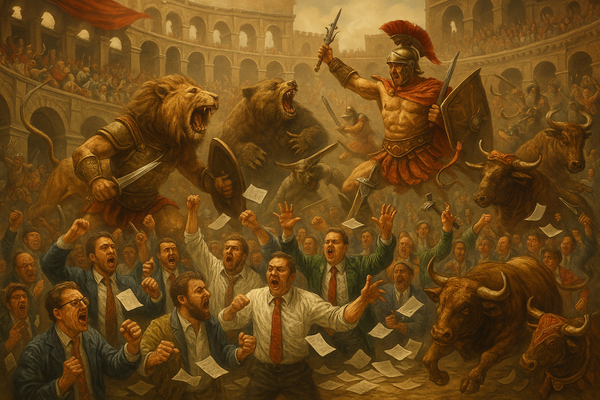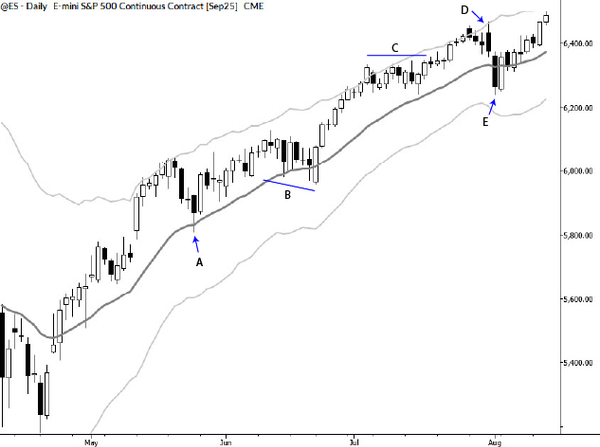Reader question: what do I do when I miss the move?
Dimitar sent a question, and I bet he’s not the only trader who struggles with this:

Hi Adam, I am part time private Trader. I read regularly your blog articles and I am coming with a question, that concerns me at the moment and which I haven't seen on your blog. When I think about my trading today, I can say I was profitable, but I am not content with how I traded. Even if I knew what will happen, the market managed to get me out of my big position, so I missed a big move. Even though I made money, because of this (missing the big move), I don't feel happy about the profit.
My question: does this way of thinking have negative impact on the development of a trader or is it good to strive towards better trading? What is your opinion on this?
Great question, Dimitar. I think there are two issues wrapped up in this question: the first is the noisy and messy nature of the market contrasted with the quest for trading perfection. The second is how we improve as traders, and to understand that we might have to redefine what successful trading looks like.
The quest for perfection
Let me just say this up front: there’s no such thing as perfection in trading. Markets are too noisy and too random for our trading to be anything approaching perfection. You will, over the course of your trading career, have some brilliant trades in which you enter at exactly the right price and are taken out at the extreme of the move. If you collect only these trades and put them in a book, people will think you are a genius!
However, you’ll also have just about as many ridiculously awful trades. There’s no way around this; no matter how many years you trade, you’ll still get “wicked out” on crazy moves. You’ll still have trades sit around for many bars, tag your stop, and then explode to your profit target without you in the trade! You’ll always have trades where you get out and then the market just rockets in the direction of your trade, and you can’t help but think how much money you would have made if only…
It’s that “if only…” that hurts us. Developing traders think that master traders have some magical insight. Frankly, this image is perpetuated on the internet today by gurus and people selling services. If you listen to these people you will think there are people who can call every turn of the market. If you focus on the bar-by-bar literature (which may be fading a bit in popularity) you’ll see authors explain the reason behind every jiggle of the market and tell you how it should have been predictable. What you might not realize is that this is all hindsight.
Good trading is really ugly. Individual trades have so much variation it’s hard to derive useful information from a very small set of trades. Work hard to fight your impulse to criticize yourself. Work hard against the “if only…” thoughts.
Getting better
Of course, we do want to get better and we should always strive to get better. To do this in a healthy way, we need to define the goal: the goal is to make money in the market, to have the sum of our winning trades, over a large sample size, be bigger than the sum of our losing trades. That’s the end goal, and the only goal that matters.
Now, we can set up many smaller goals that will help us get there. Some of these are essential, but they are not the end in themselves. Here are examples of smaller, supporting goals:
- Have a methodology that has an edge and understand that edge.
- Avoid making mistakes because errors kill.
- Have access to appropriate capital and infrastructure to apply our edge.
- Work on our psychology and trading skills to support the edge
To answer your question directly, I would ask another question: why did you miss the big move? Did you make a mistake or an error? Tighten a stop too soon? Get out in frustration? Or was this just a consequence of your trading system which you followed perfectly?
Focus on your execution and your actions. If you executed the system perfectly, it’s a good trade, regardless of the outcome of the trade. Do not evaluate your trades based on P&L—evaluate them only on whether or not you followed the rules.
This one, small change in perspective can cause a powerful shift in your perspective and growth as a trader. It's always good to strive toward "better trading", as you say in your question, but it's important to understand what "better trading" really is.



